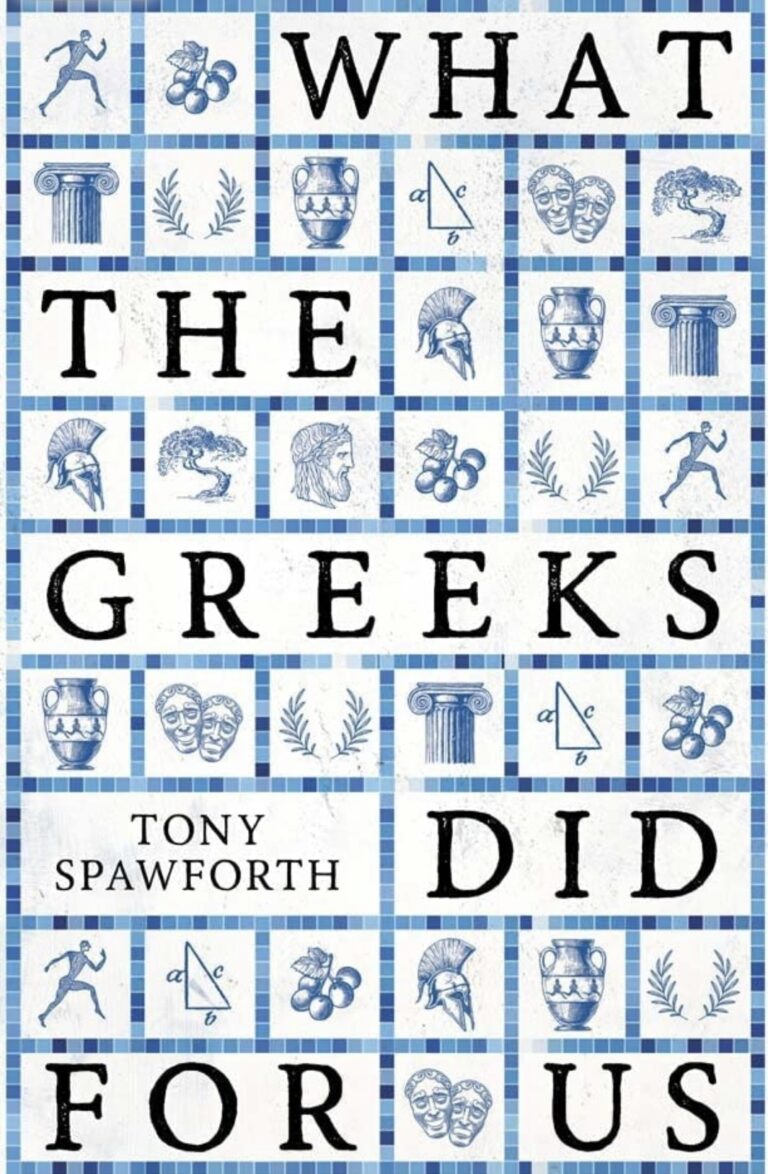“Ach so, Herr Major.” This was the remark of the Nazi General Kreipe after he was kidnapped by Patrick Leigh Fermor and his colleagues on the Greek island of Crete in April 1944. They were taking refuge in a cave, languidly smoking cigarettes, when the General, observing the growing glory of the dawn, muttered to himself, “Vides ut alta stet nive candidum Soracte”.
Leigh Fermor continued the quotation from Horace: “Nec iam sustineant onus…” The General was duly impressed and the two became friends, going on to swap their favourite passages from Sophocles. This story, which isn’t told in this attractive new book by Tony Spawforth, seems to me to illustrate one of the advantages, once upon a time, of a classical education. It provided a general frame of reference, which cut across language barriers, and provided a calling card, for people of a certain class, to form friendships wherever they might be.
The splendidly named Spawforth, who is Emeritus Professor of Ancient History at Newcastle University, largely ignores this aspect as he takes us on an otherwise amiable tour of the influence of Ancient Greece on the rest of the world. I say amiable, but one of the strengths of the book is that it doesn’t shy away from some of the negative aspects of that influence.
Returning to the Nazis, we learn that Adolf Hitler viewed Greece as a fine precedent, with its men’s blond hair and blue eyes, for the Third Reich. He was in love with the muscular form of the Lancelotti Discus Thrower, based on a Greek original, which he bought in 1937 and installed in Munich’s neoclassical Glyptothek museum. Exhorting his people to make a pilgrimage to admire the naked athlete, the Fuhrer declared, “We can speak of progress only when we have not only attained such beauty, but even, if possible, when we have surpassed it.”
In the American South, apologists for slavery cited Aristotle’s view that some people are slaves by nature, because they lack “the deliberative faculty” (τὸ βουλευτικόν).
Paedophiles have leaned on Greek precedent to justify their sordid passions. Oscar Wilde, under scrutiny for his sexual relations with men, some of whom had been in their early teens at the time, defined the “love that dare not speak its name” as the “great affection of an elder for a younger man… such as Plato made the very basis for his whole philosophy”.
My main complaint here is that Spawforth doesn’t tell us enough. There is a long litany here, about the high-faluting self-delusion that has been used to dress up this stuff. Those who have pointed to a Platonic paradigm to justify their sex lives might have struggled to answer how it fitted in with Aristotelian ideas of the limited deliberative faculty of children.
I was also left wanting more by Spawforth’s stirring sentences about the argument—to turn now to the positive influences—that Ancient Greece invented freedom as an ideal. In 1931 archaelogists in the Athenian agora excavated a shrine to “Zeus Eleutherios”, Zeus of Freedom, confirming the concept as one of the preoccupations of the father of the Gods.
According to Herodotus, in the 480s BC, a Spartan messenger informed a high Persian official that the latter couldn’t hope to understand the strength of the Greek resistance to the Persian yoke. Why? Because a Persian knew nothing of the sweetness of freedom. If he did, he would see why the Greeks would defend it “not with spear only, but with axes too”.
During WWI, a patriotic poster was displayed on the London Tube, which quoted Pericles defining “the secret of happiness to be freedom and the secret of freedom a brave heart”.
Spawforth, whose bent is historical not literary, doesn’t give us enough on Homer, whose Odysseus, for all his faults, still teaches us how to live; or the tragedians, who wrote the rules of drama that are observed on TV to this day; or Plato, who taught us how to argue by systematic question-and-answer, even though, if used in private life, this might earn you a slap.
The terrible truth is that the learned professor, for all that he says his emphasis in the book is “on the present-day”, seems rather stuck in the past. His prose style is sometimes chalk-dusty to the point of parody. He likes to say “as the saying goes”, for example, when using quite commonplace phrases, such as “do the math” and “the proof of the pudding is in the eating”.
Sometimes one wonders if he is actually joking. For instance, after declaring that he has never played a video game, he adds that “as a friend’s teenage offspring explained to me, playing means that the gamer uses a keyboard or other input device to control images on a screen run by a computer programe and sometimes called a video game movie”.
It’s okay never to have played a video game. But if you were writing a book about the influence of Greece on culture, including video games, then why wouldn’t you have a go?
The tense-choice of his title—not what the Greeks *have done* for us, but what they *did*—implies a focus on the past, rather than the present. Yet here, too, he shortchanges.
In all his chapters on sex, poetry, the Bible, aesthetics, and so on, the historian doesn’t tell us the history of how classics came to make up such a major component of our English education, how large that component was, when it declined and why, and what its influence was in tilting or tightening the English personality at a time when the Empire was being built.
For better or worse, that’s a story I want to hear. I’m not sure if it has been told recently. I was sorry that Prof Spawforth, who I suspect knows all about it, didn’t tell it here.

